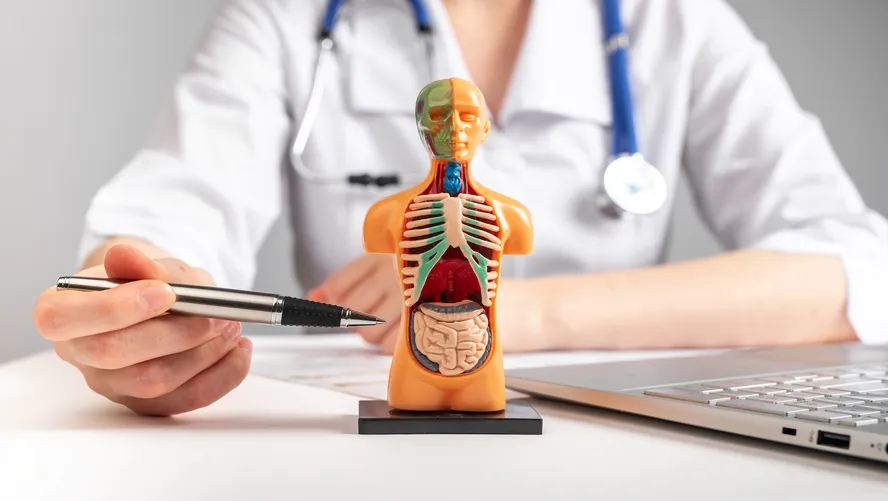
Internal Medicine is also known as internal medicine in the medical field and diagnoses, treats and monitors a wide range of diseases. This department deals with health problems related to the internal organs of adult patients in particular. Digestive system diseases, respiratory diseases, cardiovascular diseases, endocrine system diseases, kidney diseases, rheumatic diseases, infectious diseases and hematological diseases are the main diseases covered by the internal medicine department.
About the Department of Internal Medicine
The internal medicine department evaluates the general health status of patients, makes early diagnosis of many diseases and initiates the treatment process. This department, which is usually the first point of contact, refers patients to relevant branches when necessary. Internal medicine specialists perform general health checks of patients, provide management of chronic diseases and guide them on lifestyle changes.
Who is an Internal Medicine Specialist and What Are Their Duties?
Internal medicine specialists are doctors who have graduated from medical school and have received specialized training in internal medicine. These specialists evaluate, diagnose and treat the general health of adult patients. Their duties include evaluating patients' medical history, performing physical examinations, making diagnoses using laboratory tests and imaging techniques, creating treatment plans and monitoring patients' health conditions.
What Diseases Does Internal Medicine Cover?
Internal Medicine is a branch of medicine that covers a wide range of health problems for adult patients. Internal medicine specialists are involved in the diagnosis, treatment and management of many diseases that affect the body's various organ systems. Here are the main disease groups covered by internal medicine:
1. Digestive System Diseases- Gastritis and Ulcers: Inflammation of the stomach lining and sores caused by stomach acid.
- Irritable Bowel Syndrome (IBS): A chronic condition characterized by irregular bowel movements and abdominal pain.
- Crohn's Disease and Ulcerative Colitis: They fall under the category of inflammatory bowel diseases (IBD) and lead to chronic inflammation in the intestines.
- Liver Diseases: Conditions such as hepatitis, cirrhosis and fatty liver.
- Asthma: A chronic disease characterized by narrowing and inflammation of the airways.
- Chronic Obstructive Pulmonary Disease (COPD): A condition that causes permanent obstruction of the airways, including chronic bronchitis and emphysema.
- Pneumonia: Infection of the lungs.
- Bronchitis: Inflammation of the bronchial tubes.
- Hypertension: High blood pressure.
- Coronary Artery Disease: Narrowing or blockage of the heart arteries.
- Heart Failure: Inability of the heart to pump enough blood.
- Arrhythmias: Heart rhythm disturbances.
- Diabetes: A condition in which blood sugar levels are uncontrolled.
- Hypothyroidism and Hyperthyroidism: Under or overactivity of the thyroid gland.
- Metabolic Syndrome: The co-occurrence of more than one metabolic disorder.
- Chronic Kidney Disease: Gradual loss of kidney function.
- Nephritis: Inflammation of the kidneys.
- Kidney Stones: Stones formed as a result of mineral accumulation in the kidneys.
- Rheumatoid Arthritis: An autoimmune disease that causes joint inflammation and deformity.
- Systemic Lupus Erythematosus (SLE): An autoimmune disease that affects many systems in the body.
- Ankylosing Spondylitis: Inflammation of the spine and large joints.
- Anemia: Not having enough red blood cells or hemoglobin in the blood.
- Leukemia: Malignant disease of the blood and bone marrow.
- Lymphoma: Cancer of the lymphatic system.
- Influenza Infections: Respiratory tract infections caused by the influenza virus.
- Hepatitis: Viruses that cause inflammation of the liver.
- Tuberculosis: Infection caused by the bacteria Mycobacterium tuberculosis.
The department of internal medicine plays a critical role in the management of these and many other diseases. Internal medicine specialists diagnose and treat diseases and closely monitor the general health of patients. They also guide patients in the management of chronic diseases, lifestyle changes and disease prevention.
What are Internal Medicine Examinations?
Internal medicine examinations are comprehensive examinations performed to assess the general health status of patients. During these examinations, the patient's medical history is taken, a detailed physical examination is performed, and laboratory tests and imaging methods are used if necessary. Methods such as blood tests, urine tests, x-rays, ultrasonography, tomography, and MRI are frequently used diagnostic tools.
What Methods Are Used in the Treatment of Internal Medicine Diseases?
Various methods are used in the treatment of internal diseases. Drug treatments, lifestyle changes, diet and exercise programs are the most common treatment methods. In some cases, surgical interventions may be required depending on the patient's condition. In addition, regular check-ups and rehabilitation programs are applied for the management and follow-up of chronic diseases.
When Should You Go to the Internal Medicine Department?
The internal medicine department should be visited for general health checks, when any complaints or symptoms of illness are observed, for the management of chronic diseases, and for the diagnosis and treatment of specific health problems. For example, it is important to apply to the internal medicine department when symptoms such as constant fatigue, shortness of breath, sudden weight loss or gain, constant cough, abdominal pain, skin rashes occur.
What is done during an internal medicine examination?
During an internal medicine examination, the patient's complaints and medical history are first listened to. Then, a physical examination is performed. When deemed necessary, diagnostic tests such as blood tests, urine tests, x-rays, and ultrasounds are requested. During this process, an evaluation is made by taking into account the patient's general health status, symptoms, and chronic diseases if any. An appropriate treatment plan is created based on the examination results and the patient is provided with the necessary information.












